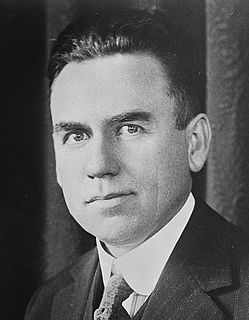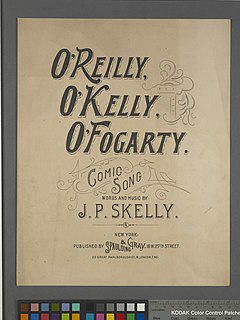
Marion Try Slaughter, better known by his stage name Vernon Dalhart, was an American country music singer and songwriter. His recording of the classic ballad "Wreck of the Old 97" was the first country song to sell one million copies.

The Wreck of the Old 97 was an American rail disaster involving the Southern Railway mail train, officially known as the Fast Mail, while en route from Monroe, Virginia, to Spencer, North Carolina, on September 27, 1903. Travelling at an excessive speed in an attempt to maintain schedule, the train derailed at the Stillhouse Trestle near Danville, Virginia, where it careened off the side of the bridge, killing 11 on-board personnel and injuring seven others. The wreck inspired a famous railroad ballad, which was the focus of a copyright lawsuit and became seminal in the genre of country music.
Lindbergh is a Swedish surname which may refer to:
Frank Luther was an American country music singer, dance band vocalist, playwright, songwriter and pianist.

Carson Jay Robison was an American country music singer and songwriter. Although his impact is generally forgotten today, he played a major role in promoting country music in its early years through numerous recordings and radio appearances. He was also known as Charles Robison and sometimes composed under the pseudonym, Carlos B. McAfee.
John I. White was a western music singer. He was born in 1902 and originated from Washington, DC. Working under various stage names, such as the Lone Star Ranger,the Lonesome Cowboy, and most often Whitey Johns he flourished as a performing and recording artist in the 1920s and 1930s. His first recordings were for the American Record Company and were released on a wide variety of record labels. He frequently performed covers of songs written by Vernon Dalhart. His most famous recordings were two of his last, "Whoopee Ti Yo Yo, Git Along Dogies" and "The Strawberry Roan" issued under his proper name, John White.
Vernon "Verne" Harrell was an American R&B singer and songwriter.
This is a list of notable events in country music that took place in the year 1928.
This is a list of notable events in country music that took place in the year 1927.
This is a list of notable events in country music that took place in the year 1926.
This is a list of notable events in country music that took place in the year 1925.
This is a list of notable events in country music that took place in the year 1924.
This is a list of notable events in country music that took place in the year 1922.
"The Prisoner's Song" is a song copyrighted by Vernon Dalhart in 1924 in the name of Dalhart's cousin Guy Massey, who had sung it while staying at Dalhart's home and had in turn heard it from his brother Robert Massey, who may have heard it while serving time in prison.

Frank Ferera was a Hawaiian musician who recorded successfully between 1915 and 1930. He was the first star of Hawaiian music and influenced many later artists.

Alfred Aloysous Bernard was an American vaudeville singer, known as "The Boy From Dixie", who was most popular during the 1910s through early 1930s.
Vernon Dalhart recorded "Puttin' On the Style" in December 1925 and by 1926 it was a popular hit. The song was collected in the Catskills by Norman Cazden from Ernie Sagar in 1945 showing that it had entered oral tradition. Another version has also been collected from oral tradition in West Virginia.
Pictures from Life's Other Side" is a traditional song popularized by Hank Williams under the pseudonym "Luke the Drifter." It was released on MGM Records in 1951.

Joseph Paul Skelly, also abbreviated J. P. Skelley, was a composer of music. He arranged the music for songs published as sheet music. For other songs he composed the words and music. The Lester S. Levy Sheet Music Collection at Johns Hopkins University has sheet music for many of the songs he composed. The Library of Congress has several of his works in its collection.
This page is based on this
Wikipedia article Text is available under the
CC BY-SA 4.0 license; additional terms may apply.
Images, videos and audio are available under their respective licenses.






